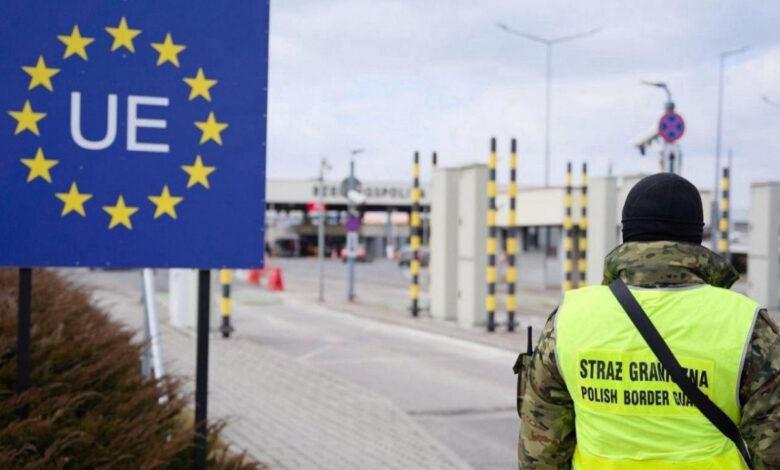Entry to the EU will become paid: what will change for Ukrainian refugees and when the new system will work

Since the beginning of the full-scale invasion, millions of Ukrainians have been forced to leave their homes and seek protection in the countries of the European Union. Poland, Germany, the Czech Republic, Italy, Spain have become not only transit points, but also new homes for hundreds of thousands of our citizens. The visa-free regime with the EU in the first months of the war allowed Ukrainians to cross the border almost unhindered, escaping from the war. However, in the near future, the rules of entry will change — the ETIAS pre-authorization system will be launched, which will make border crossing paid and mandatory even for citizens of visa-free countries, including Ukraine. For Ukrainian refugees and forced migrants, this issue is of particular importance.
What will change for Ukrainians
The European Union postponed the implementation of the ETIAS system to the end of 2026, although its launch was originally planned for the spring of 2025. According to the latest data, mandatory authorization in full should be expected no earlier than 2027. This decision is related to technical difficulties and delays in the implementation of another control system — EES (Entry/Exit System), which should record every entry and exit of citizens at the borders of the Schengen area. It is on the basis of EES that the new ETIAS admission system will work.
The ETIAS system provides that citizens of Ukraine, like all citizens of visa-free countries, must fill out an online questionnaire before traveling to the EU, provide personal data and answer a number of questions – in particular, regarding the purpose of the trip, possible criminal records or facts of being on the “black lists” of law enforcement agencies of EU countries. After that, you will have to pay a fee of 7 euros.
The permit will be valid for three years or until the expiration of the foreign passport. Even those Ukrainians who often cross the border — for example, work in Poland or visit relatives in the Czech Republic or Germany — will have to apply.
Are there exceptions?
Children and people over 70 are exempt from paying the fee. But even these categories must go through the full application process — that is, fill out a form and get an entry permit. There are no exceptions for Ukrainians as a nation or for people with temporary protection in the EU at the stage of developing the system yet.
Why it is important for Ukrainian refugees
The change in the rules will affect not only tourists or workers, but also hundreds of thousands of Ukrainian refugees. In particular, we are talking about those who, since the beginning of the war, have been living in European countries under temporary protection and return to Ukraine from time to time — to visit relatives, resolve personal matters, or check preserved property.
After the launch of ETIAS, each such trip will require prior authorization and payment of a fee. For many Ukrainian families who have lost everything and are forced to survive at the expense of social benefits in the EU, even this 7 euros per person can become an additional financial burden, especially when it comes to trips several times a year or a large family return.
Why was the system launch postponed?
The European Union has repeatedly postponed the launch of ETIAS due to the complexity of the technical integration with the EES entry/exit control system. Only after its full implementation will ETIAS be able to work at all borders. Currently, individual elements of the EES are planned to be test-launched as early as October 2025 at selected checkpoints.
What else is important to know
Despite the fact that the ETIAS system is positioned as a tool to increase security and control migration flows, for Ukrainians it can become another barrier to access to Europe. Especially for those who do not have digital skills or access to the Internet – because the entire process of obtaining a permit will be online.
In addition, the problem of medical insurance at the border remains relevant for refugees. In particular, in Poland it is increasingly emphasized that Ukrainian citizens must have an insurance policy when crossing the border. This is another additional financial burden for families who are often forced to leave and return.
Germany, which received one of the largest groups of Ukrainian immigrants, continues to provide financial support to people with disabilities and socially vulnerable refugees. However, with the launch of ETIAS, even these groups will face new bureaucratic procedures.
The introduction of the ETIAS paid entry system will be one of the biggest changes in border crossing rules for Ukrainians in recent years. And although, at first glance, the amount of the fee seems small, for many refugee families it will turn out to be a serious challenge. The system will complicate and make trips more expensive, make the process more controlled and require Ukrainians to be constantly prepared for new rules, registrations and inspections.





